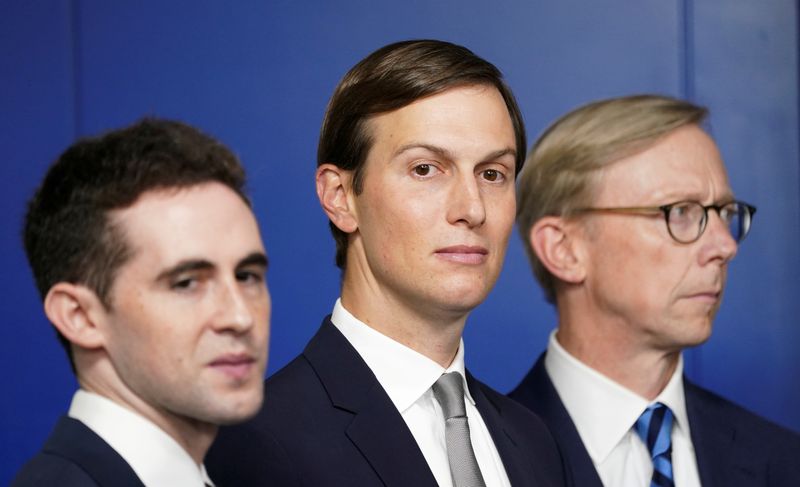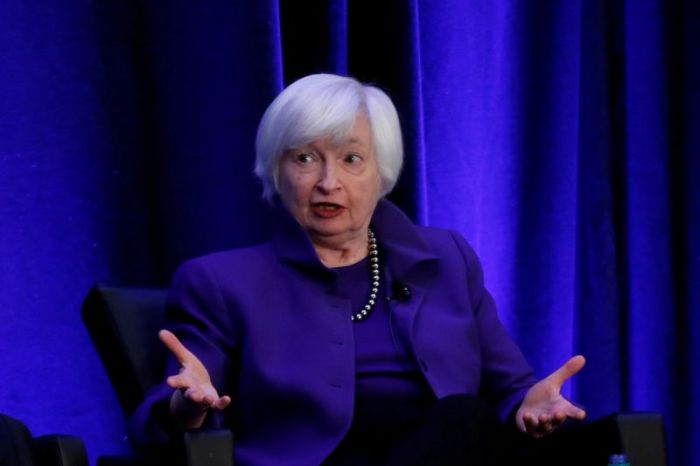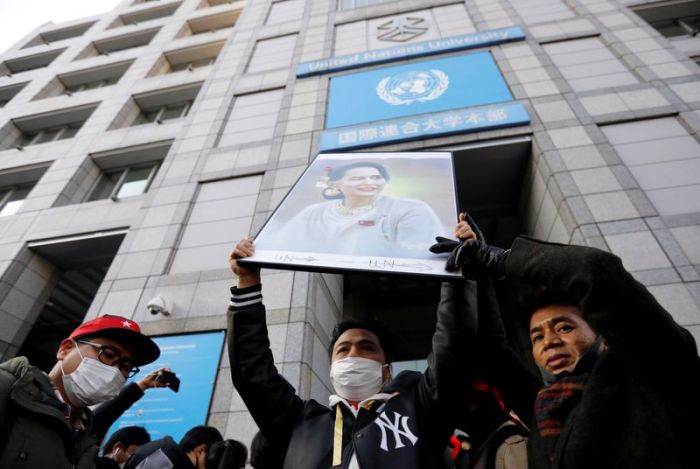WASHINGTON (Reuters) -Former White House senior adviser Jared Kushner and his deputy, Avi Berkowitz, were nominated by a friendly attorney on Sunday for the Nobel Peace Prize for their role in negotiating four normalization deals between Israel and Arab nations known as the “Abraham Accords.”
The deals were announced in a four-month span between mid-August and mid-December and were the most significant diplomatic breakthroughs in the Middle East in 25 years as the region girds for a prolonged confrontation with Iran.
Nominating the pair of former deputies to then-President Donald Trump was American attorney Alan Dershowitz, who was eligible to do so in his capacity as a professor emeritus of Harvard Law School.
Dershowitz had defended Trump in his first impeachment trial last year and said in a Jan. 20 comment in the Wall Street Journal that the Senate should dismiss the article of impeachment against Trump over the Jan. 6 storming of the U.S. Capitol as he is no longer president.
In his letter to the Nobel committee, Dershowitz also cited the work of former U.S. Ambassador to Israel David Friedman and former Israeli ambassador to the United States Ron Dermer in the normalization deals. He seemed to suggest his nomination could be controversial.
“The Nobel Peace Prize is not for popularity. Nor is it an
assessment of what the international community may think of those who helped bring about peace. It is an award for fulfilling the daunting criteria set out by Alfred Nobel in his will,” he wrote.
Kushner, who is Trump’s son-in-law, and Berkowitz, who was the Middle East envoy, were key figures in negotiating deals between Israel and the United Arab Emirates, Bahrain, Sudan and Morocco.
In a statement, Kushner said he was honored to be nominated for the prize, which will be awarded in October.
President Joe Biden’s administration is expected to review all national security deals struck during the Trump administration, including arms packages for the United Arab Emirates and Saudi Arabia.
Some lawmakers have complained about the Morocco deal because, to win the nation’s agreement, the United States recognized its sovereignty over the disputed Western Sahara.
Trump left office on Jan. 20 under a cloud of controversy, potentially affecting whether the two aides would be awarded the Nobel.
(Reporting by Steve HollandEditing by Clarence Fernandez and Ana Nicolaci da Costa)























